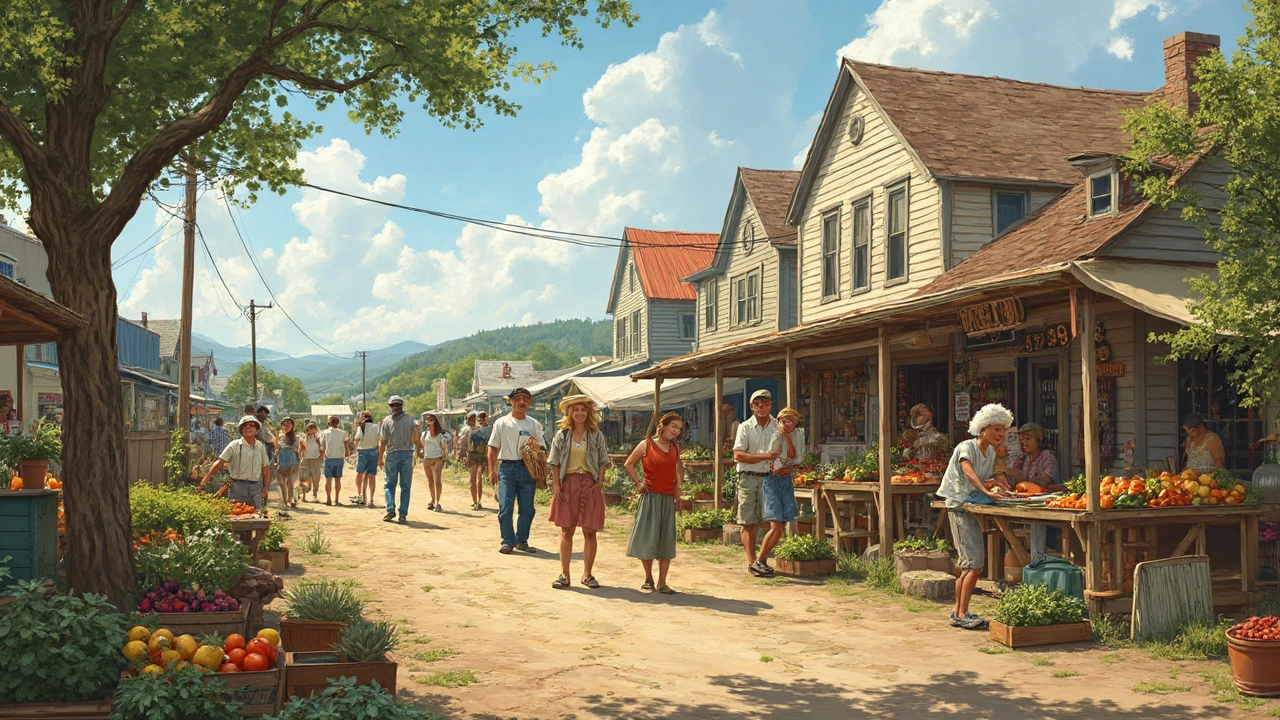Community Projects: Fresh Ideas for Better Urban and Small Town Living
Tired of hearing that only big cities have all the action? Community projects can shake up your local life, whether you’re in a packed city block or a quiet small town. They’re not just about volunteer clean-ups or holiday events—real projects spark economic growth, bring neighbors together, and even make life more fun.
Think about it. A single community garden can turn unused land into a food source and give people a reason to bump into each other, share tips, and chat. Small business pop-ups are more than shops; they’re test beds for local talent to shine and for folks to find one-of-a-kind stuff. Local art murals don’t just decorate—they make folks proud of where they live and draw in curious visitors.
If you’ve ever rolled your eyes at cookie-cutter ideas, you’re not alone. The best community projects are the ones that actually solve problems people care about. In small towns, that might mean a project that helps local farmers sell their goods online or a co-working hub so freelancers have a spot to connect. In the city, it could be a weekend skill-swap where neighbors trade lessons—knitting for coding, or baking for basic bike repairs.
Getting people involved can seem tough, but the trick is to start small and keep it personal. Is there an empty storefront? Pitch a pop-up event. Have a vacant lot? Rally a few neighbors and grow herbs or flowers. Got local music or food talent? Host a street show right on your block. These bits of action add up—a single festival or workshop often sparks bigger ideas the next season.
Don’t have a big budget? Most projects start with barebones tools and a lot of phone calls or text groups. Social media helps, but face-to-face invites work even better. Let people be part of the plan—ask them what bugs them every day, and see if you can solve it together. The more locals get to own the process, the more likely they’ll show up, spread the word, and pitch in for the long haul.
Worried about sustainability? Projects don’t have to be expensive or complicated to last. A borrowed event tent, a handful of volunteers, or even reusing materials from past events can keep things moving. The focus should be on what fits your area—recycle, reuse, collaborate.
Bottom line: real impact comes from trying bold ideas, listening to real people, and making little changes that add up. Urban or rural, making your neighborhood a better place starts with that first honest conversation—and a willingness to roll up your sleeves.
Small Town Ideas: Transforming Rural Areas for the Better
Posted by Elias Hartfield on Mar, 8 2025

Rural areas offer unique opportunities for innovation and community development. By leveraging local resources and fostering community engagement, small towns can experience meaningful growth. This article explores practical ideas and successful examples of how rural communities transform challenges into opportunities, sparking new life in these often-overlooked areas. Whether it's through local business initiatives or community-driven projects, small towns can thrive with the right approach. Discover how these ideas make a big difference in rural environments.
